26. Jeffrey Crowley, MPH
As director of the Office of National AIDS Policy at the White House, and as Obama’s lead AIDS strategist, Crowley works to ensure the president makes good on his campaign promise of implementing a National HIV/AIDS Strategy. He has spent countless hours meeting with HIV-positive people across America and translating their concerns to the folks in DC. Crowley seems enigmatically stoic to some. But be sure: Beneath his polished exterior is a lion-hearted defender of people with HIV.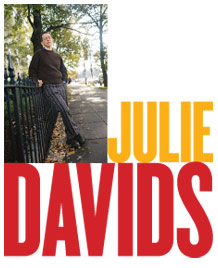 27. Julie Davids
27. Julie Davids
In her role as national advocacy and mobilization director for the AIDS Foundation of Chicago, Davids brings her experience, integrity and vision to a variety of U.S.-based prevention and social justice organizations such as Project UNSHACKLE and the HIV Prevention Justice Alliance. She’s a veteran of ACT UP Philadelphia and Health Gap, and where she leads, we will follow.
28. Joe De Capua
An American-based international journalist with a good handle on the universal drivers of HIV, De Capua uses his platform of Voice of America to explore HIV-related topics few other members of the media are willing to discuss. From Uganda’s “Kill the Gays” bill to the lingering and deadly nature of AIDS-stigma, De Capua digs deep and gets it right.
29. The Denver Principles
Created at a 1983 conference in Denver when people living with HIV came together to discuss the rights of people with HIV, the Denver Principles have long been the moral compass for our community. They were drafted by a group of PWAs led by Bobbi Campbell and were designed to protect, dignify and empower people living with HIV/AIDS. They begin, famously with, “We condemn attempts to label us as ‘victims.’” Years later, they are still fundamental to our fight. If you have not read them lately, do so now. They are our guiding light.
30. Desert AIDS Project
Based in the Palm Springs Desert, DAP offers an impressive lineup of AIDS care services including holistic care, dental and gynecological services, prevention and social support. CEO David Brinkman leads the organization, which also takes on advocacy and fund-raising. Notables like Archbishop Desmond Tutu, Tom Hanks and Queen Latifah have joined DAP each year for its annual Steve Chase Humanitarian Awards Gala. 2011 marked DAP’s 27th year of providing outstanding help to people with HIV/AIDS.
31. Ambassador Mark Dybul
Dybul was an Independent who worked for the Republicans as the global AIDS coordinator in the Bush White House. Part of the team that created the President’s Emergency Plan for AIDS Relief (PEPFAR), Dybul garnered huge bipartisan support for AIDS relief. Today, Dybul is the codirector of the O’Neill Institute for National and Global Health Law at Georgetown University and is the inaugural fellow in the newly formed Bush Institute. Few people are as smart as he is about AIDS.
32. Wafaa El-Sadr
The director of the International Center for AIDS Care and Treatment Programs at Columbia University’s Mailman School of Public Health in New York, El-Sadr is an expert voice on HIV/AIDS. Incredibly insightful and thoughtful, the former MacArthur Fellow develops treatment strategies that take into account real world issues such as education, social status , economic stressors and barriers to care.
33. Kenyon Farrow
Using his silver tongue and the digital domain, Farrow eloquently expounds on the needs of young, black men who have sex with men (MSM), a group at high risk for HIV—they’re six times more likely to contract the virus than their white MSM counterparts. Farrow’s fresh thinking and frank commentary give much-needed insight and voice to a community facing multiple challenges.
34. Anthony Fauci, MD
From the earliest days of the pandemic, he has kept one foot on the ground with people living with HIV and the other on the fortress-like campus of the National Institutes of Health where he is director of the National Institute of Allergy and Infectious Diseases. Fauci personally believes we’re on the brink of ending AIDS, and he allocated $70 million over five years for cure research at the NIH as part of the Martin Delaney Collaboratory—named after the late, great AIDS treatment activist. Fauci famously said, “We can pay a lot to end AIDS now, or we can pay an awful lot later.”
35. Kevin Fenton
As the director of the National Center for HIV/AIDS, Viral Hepatitis, STD and TB Prevention at the CDC, Fenton oversees HIV prevention in America. We give him credit for addressing the real reasons certain groups are disproportionately at risk for HIV. He attempts to dispel dangerous myths and highlights the true factors—such as high rates of incarceration, sexual violence, drug use, lack of access to health care, poverty and higher prevalence of STIs-—that make some people especially vulnerable. By doing so, he allows us to focus on the drivers of HIV infections and administer high impact prevention to overcome them.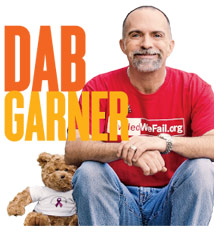 36. Dab Garner
36. Dab Garner
A 30-year AIDS survivor, Garner started giving teddy bears to AIDS patients in the early ’80s when people with HIV were often quarantined. Garner founded the “Dab the AIDS Bear Project” in 2003 in response to cuts in the federal Ryan White HIV/AIDS Program; today, the bear project raises funds to provide meds for people with HIV. The grassroots organization accepts only private donations. In July 2011, Sherri Lewis, an AIDS advocate living with HIV, discussed the AIDS vaccine on CNN—holding a Dab the AIDS Bear in her lap. Talk about primo product placement!
37. “A Grassroots History of the HIV/AIDS Epidemic in North America”
This new book, written by James Gillett, an associate professor at McMaster University in Hamilton, Ontario, Canada, explores how, throughout the epidemic, HIV-positive communities have gotten involved in the decisions that affect their lives—to ensure they survived and thrived with HIV. It’s a great chronicle of the link between self-empowerment and improved health. Points to our DNA: that POZ is cited 57 times.
38. Robert Greenwald
Recently tenured at Harvard, Greenwald understands AIDS policy like few others. He guides research agendas, policy development and advocacy. In plain terms, he fights to increase access to care and treatment for low-income people with HIV and other chronic illnesses. Greenwald is the managing director of the Legal Services Center of Harvard Law School, the director of the Center for Health Law and Policy Innovation and a clinical professor of law. He’s also on the Presidential Advisory Council on HIV/AIDS. With a set of titles like that, you’d better be a genius. Luckily, he is.
39. Hairdressers Against AIDS
Launched in the United States on World AIDS Day 2010, the L’Oreal initiative uses its nearly 1,200 educators to teach 950,000 hairdressers across America how to enlighten their clients about HIV/AIDS. The campaign’s goals are based on those of the National HIV/AIDS Strategy. Since people tell their hairdressers everything, it makes good sense to leverage that trust to engender healthy sexual habits to a captive audience.
40. Harm Reduction Coalition
Under the watchful eye of executive director Allan Clear, this coalition helps people address dangers associated with injection drug use, including overdose, HIV, hepatitis C, addiction and incarceration. Big players in removing the federal ban on syringe exchange in 2009, they are currently in the news for Naloxone advocacy. (The drug can rapidly reverse the potentially deadly effects of opiod drugs like heroin and prescription pain relivers OxyContin and Vicodin.) Given that 30 percent of all people with HIV in the United States are or have been injection drug users, this group’s work is central to the demise of AIDS.
41. Mark Harrington
The cofounder and policy director of the Treatment Action Group (TAG), Harrington has been an AIDS activist since his days in ACT UP in the ’80s. TAG sits at the intersection of science, activism and policy. If there was ever a time we needed to reignite a fire, this is it. Harrington can help lead the charge to catalyze the elements needed to end AIDS.
42 . Health Gap
This global activist group has a single focus: securing the resources necessary to sustain health care access for people with HIV/AIDS across the globe. It works with allies in the global south and in the G8 countries to formulate policies and mobilize grassroots support. It confronts governments, the pharmaceutical industry and international agencies when their policies or practices block access to meds and care. This is one group of people you don’t want mad at you. Can someone please clone Matthew Kavanagh and his team?
43. Health HIV
As the landscape of how we administer AIDS care in America shifts, HealthHIV has positioned itself to ensure quality care for people with the virus wherever they get their health care. The estimated number of people with HIV (1.1 million Americans) far exceeds the capacity of the current roster of AIDS docs—and people usually don’t discover their status at an infectious disease specialist’s office. Led by Brian Hujdich, this org teaches practitioners in all settings how to screen and care for people with HIV. A great prescription.
44. Todd Heywood
Heywood is currently The Michigan Messenger’s correspondent for the lesbian, gay, bisexual and transgender publication Between the Lines. Known for breaking investigative stories that focus on the criminalization of people living with HIV, Heywood is what all good journalists should be: a watchdog and a burr under the establishment’s saddle pad.
45. Kathie Hiers
The CEO of AIDS Alabama is also a member of the Presidential Advisory Council on HIV/AIDS. A major voice for the growing problem of unchecked AIDS in the American Southeast, Hiers has been instrumental in shifting federal funding dollars strategically to areas and people that need it most. Diminutive in stature, she is a giant of a woman with her heart in the right place—close to home.
46. Marjorie Hill
When it was announced that Gay Men’s Health Crisis would need to seek new living quarters, the HIV community went into an uproar. As Hill hunted for adequate housing for New York City’s legendary AIDS service organization—no easy task as AIDS stigma made finding a landlord and building challenging—Larry Kramer fell to his knees and begged Hill not to move the organization out of its original home. But Hill sat strong and tall and listened and assured everyone that GMHC would be bigger and better than ever before. Turns out, it is.
47. The HIV Law Project
The HIV Law Project has tackled some huge issues this year, including filing a class action suit in U.S. District Court accusing New York agencies of illegally withholding portions of federal disability awards in order to reimburse themselves for funds they never actually spent, and in the process, leaving empty pockets for people living with HIV. With a sense of urgency and integrity, the HIV Law Project also fights against discrimination and for immigration laws, housing and eviction prevention, health insurance, employment and benefits for people with HIV.
48. The HIV Story Project
This San Francisco–based nonprofit compiles multimedia short films about living with HIV/AIDS at the beginning of the 21st century. Created by Marc Smolowitz, an Academy Award–nominated producer, it invites people across the globe to digitally share their local perspective on the state of HIV/AIDS. The project set up an AIDS story telling booth in the Bay area—instead of taking pictures, the booth taped video testimonies. Stay tuned for “Still Around,” a compilation of 16 short films about people who have been living with HIV for years. Chronicling the longevity of AIDS survivors gives hope to those new to HIV.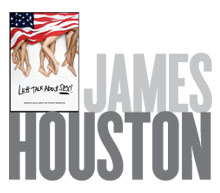 49. James Houston
49. James Houston
Aussie Houston recently released a documentary called Let’s Talk About Sex. It canvasses youth around the world, getting them to talk about sex, and in doing so, it shows the dangers of what happens when young people try to navigate puberty when no one has given them the tools to do so. It’s a powerful endorsement for the self-esteem and sense of self-preservation that result from self-empowerment brought on by knowledge. And it’s testimony that it can be deadly to leave kids in the dark about sexual health.
50. The International AIDS Conference
For the first time in 22 years, the world’s largest AIDS conference returns stateside. AIDS 2012 kicks off on July 22 and is possible thanks to the removal of the ban on HIV-positive travelers entering the United States. It will gather about 30,000 people living with and affected by HIV/AIDS in our nation’s capital just months before the presidential election. It will be a monumental occasion with historic implications. Françoise Barré-Sinoussi (see No. 11) is the incoming head of the International AIDS Society, the group that puts on the conference, so there will probably be a heavy focus on the cure, vaccines and ending AIDS. We’ll be covering every minute of it.
Introduction | 1-25 | 26-50 | 51-75 | 76-100




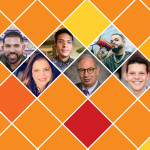
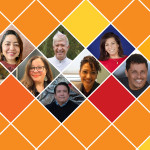
1 Comment
1 Comment